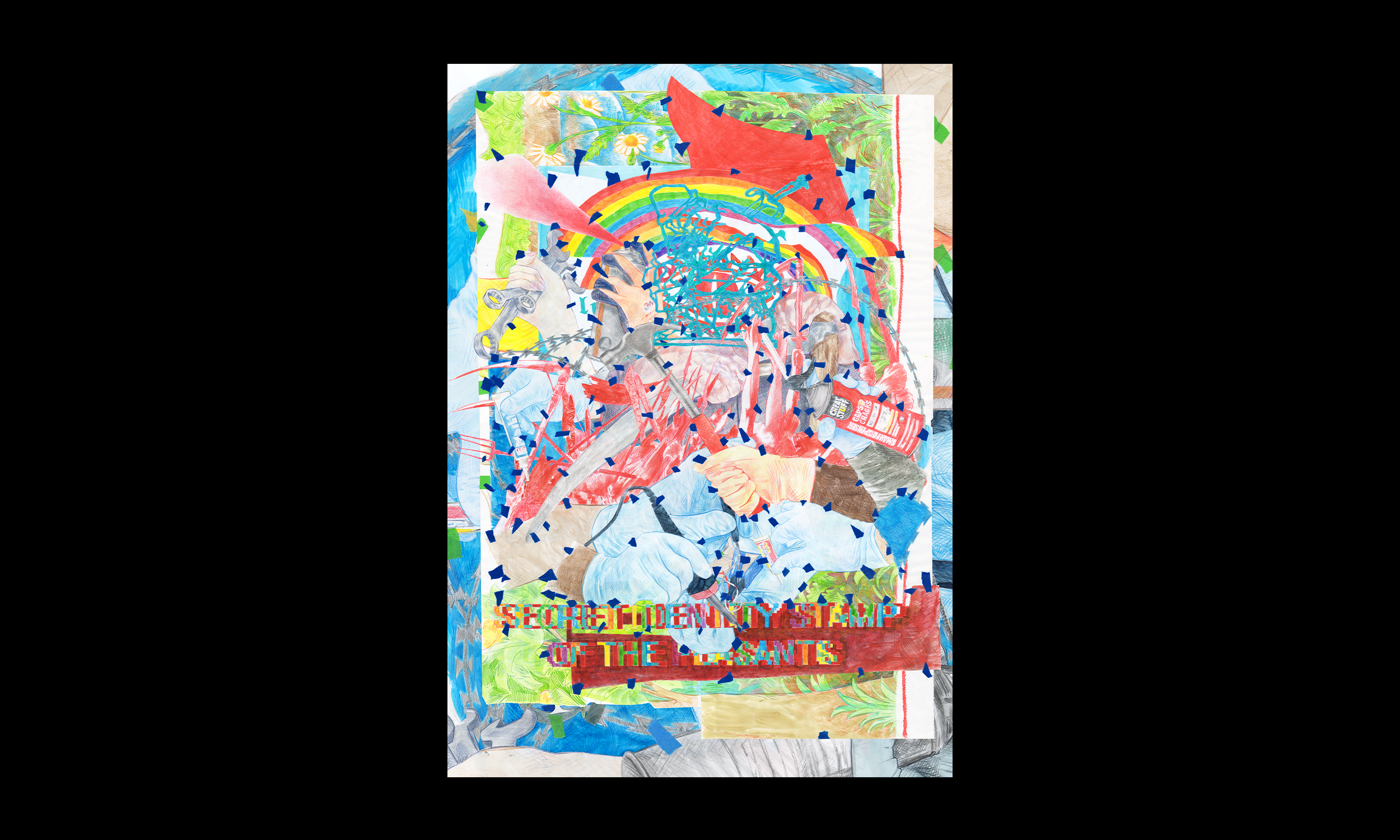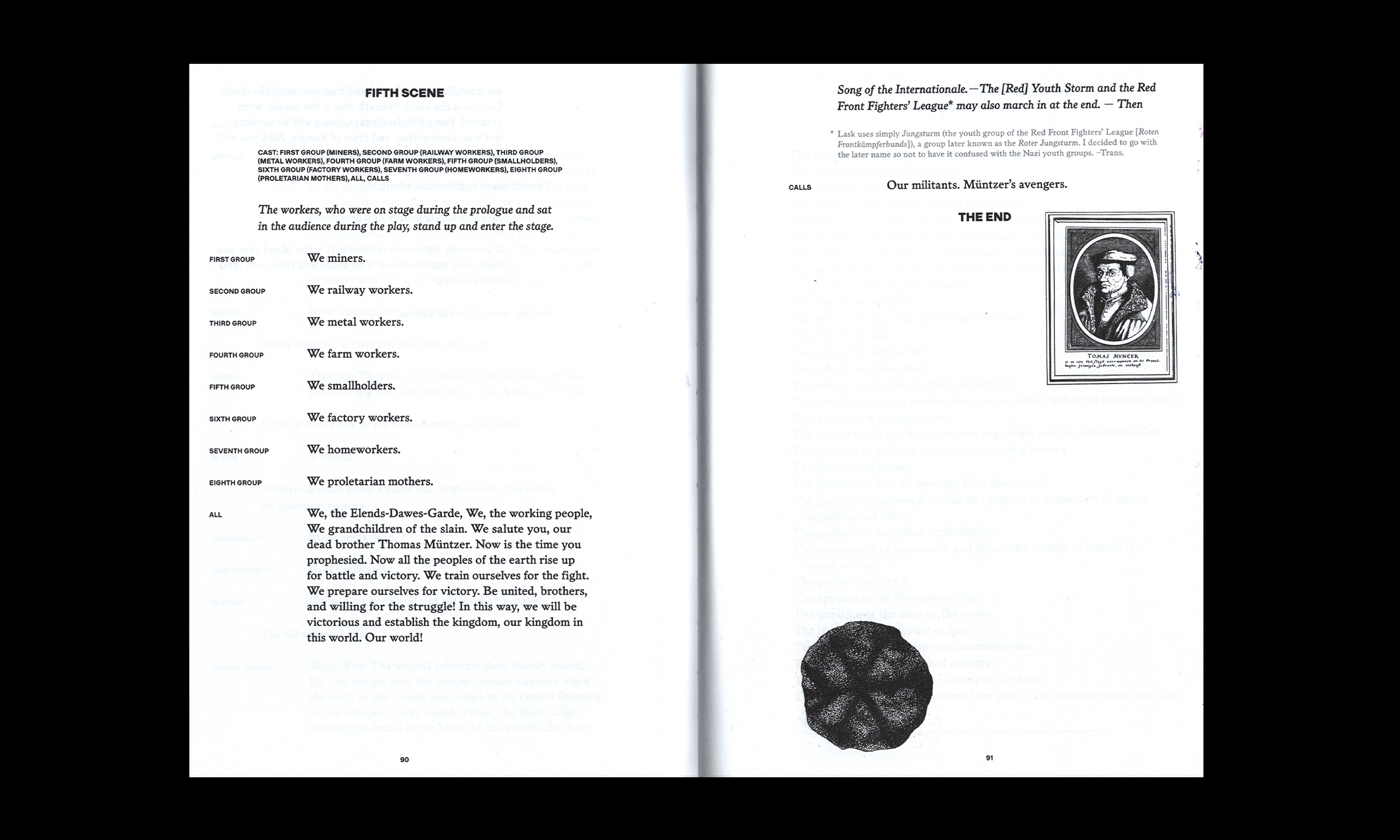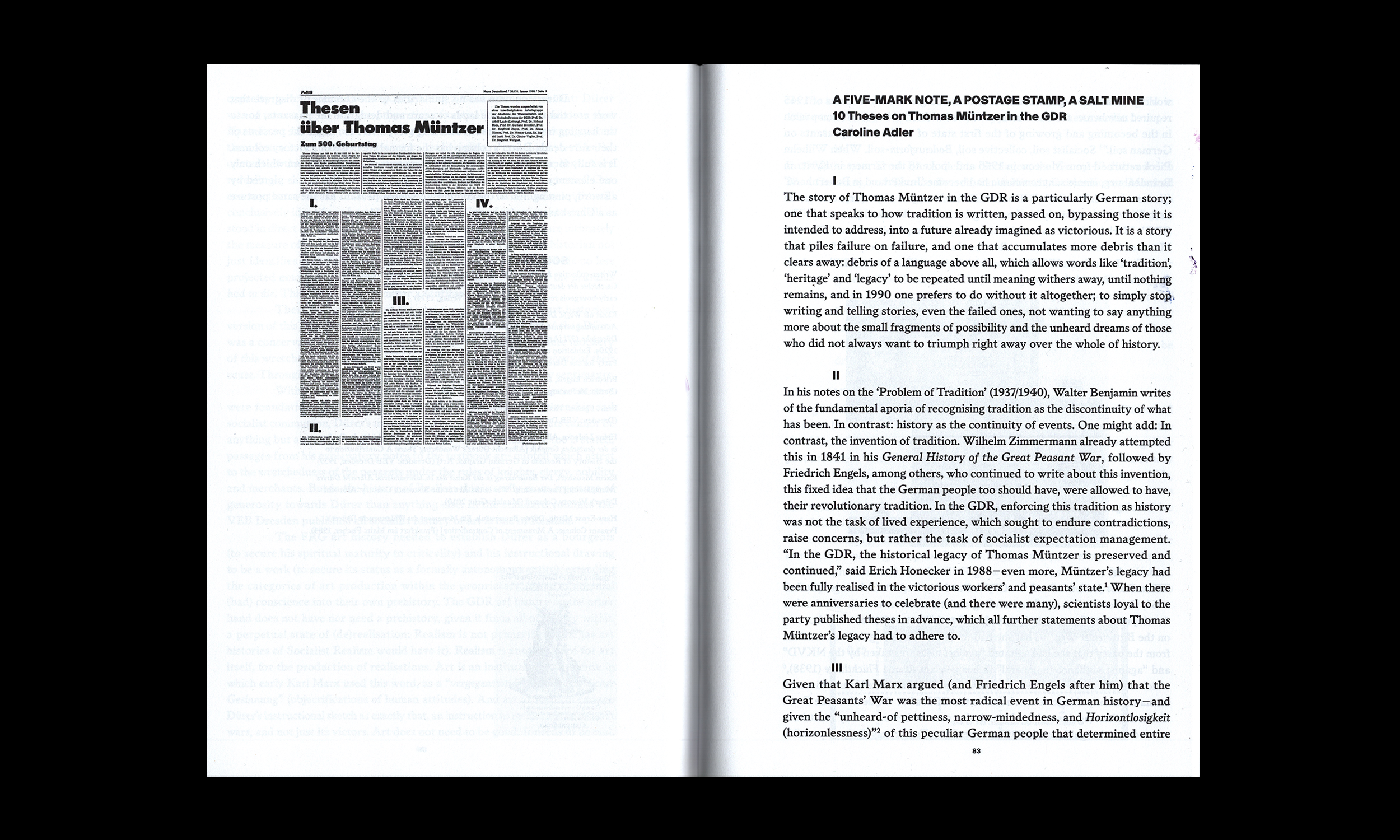One hundred years ago, playwright Berta Lask (1878–1967) was commissioned by the German Communist Party to write a play marking the quatercentenary of the German Peasants’ War. She agreed, staging the reappearance of its leader Thomas Müntzer — who awakens every hundred years to address the present, represented in the prologue as a cast of striking proletarians to whom he tells his story.
In the play, Lask poses a basic question: What would Thomas Müntzer see if he woke up today? A list accrues: Climate breakdown, imperialism, gendered oppression, earthquakes, genocide, impending fascism. Capitalism didn’t dig its own grave. Rather, the dead oppressors of previous centuries have been resurrected, planted in new bodies, tooled with new modes of bondage, within uneven spatial domination and temporal disjunction. Thomas Müntzer, with all of its time travel and its modes of resurrection, addresses the present from a past multiplied.
For the first time, Lask’s play has been translated for a print edition alongside a set of commentaries and interventions: on everything from the “prolatarian problem play” to rainbows and bundles of twigs; from Albrecht Dürer’s monument to the slain peasants to Paul Robeson’s rendition of “Joe Hill”; from revolutionary violence to tragic commemoration.
Translated by Sam Dolbear with Esther Leslie, Joey Simons and Charlotte Thießen, both volumes are edited by Sam Dolbear. The second, commentaries, volume includes contributions by Caroline Adler, Joseph Albernaz, Hunter Bivens, Shane Boyle, Rebecca Comay, Sam Dolbear, Loren Goldman, Danny Hayward, Disha Karnad Jani, Sam Keogh, Henrike Kohpeiss, Esther Leslie, Huw Lemmey, Peter Linebaugh, Hussein Mitha, Vesa Oittinen, Hannah Proctor, Daniel Reeve, Ashkan Sepahvand, O. L. Silverman, Joey Simmons, Kerstin Stakemeier, virgil b/g taylor, and Alberto Toscano.
Designed by Ott Kagovere, the two A4 size volumes are wrapped in a poster by artist Sam Keogh.













